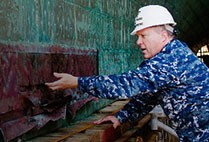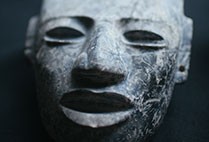Last December, President Obama announced a historic agreement with Cuban President Raul Castro to normalize diplomatic relations between the United States and Cuba after more than half a century of Cold War hostilities. In July, the two countries reopened their foreign embassies and on August 15, John Kerry (Hon.’05) became the first US secretary of state to travel to Cuba since 1945.
Now, argues Susan Eckstein, a BU scholar of contemporary Cuba and Cuban American immigration, it’s time to rethink another outdated vestige of Cold War politics: US-Cuban immigration policy. For half a century, she says, Cuban immigrants have been awarded unique immigration privileges.
“There are no undocumented Cuban immigrants in the United States, because as a result of the Cuban Adjustment Act of 1966 Cubans qualify for legal residency after one year on US soil and then citizenship five years later, even when they enter the country illegally,” says Eckstein, a professor of sociology and international relations at the College of Arts & Sciences and at the Frederick S. Pardee School of Global Studies. “No other foreign-born people enjoy such entitlement.”
Eckstein has written two books on Cuba: Back from the Future: Cuba under Castro (Princeton, 1994; Routledge, 2003) and The Immigrant Divide: How Cuban Americans Changed the US and Their Homeland (Routledge, 2009). This past spring, she was awarded a John Simon Guggenheim Memorial Foundation Fellowship to research a book about what she calls Cuban immigration exceptionalism.
Bostonia talked with Eckstein about her book and the tangled history and politics behind US-Cuban immigration policy.

It’s time to rethink US-Cuban immigration policy, says Susan Eckstein. Photo courtesy of Eckstein
Bostonia: Tell us about your book.
ECKSTEIN: I’m focusing specifically on US-Cuban immigration policy and bringing to it much broader issues based on my knowledge of Cuba and the Cuban American community here. My book will be about the ways in which Cubans have gotten exceptional US immigration privileges. People know about some of the privileges, and very little about the politics behind the granting of the unique set of privileges.
What is the history?
I’m going back to 1959—to when Fidel Castro took power. It was after the revolution that Cubans started getting exceptional rights. They came after 1959 on tourist visas and were allowed to overstay their tourist visas without being subjected to deportation. Or they were let in without visas and permitted, officially, to stay. People from other countries did not have comparable privileges.
Then in 1966, under President Johnson, the United States passed the Cuban Adjustment Act, which allowed Cubans who touched US soil to be paroled into the United States. The word paroled has a specific meaning in immigration policy. It means temporary status. They were allowed to qualify nearly automatically for parole and after a year change that status to legal permanent residency.
You wrote in a Reuters essay that Cuban immigrants initially were given special rights “to sap the Cuban regime of its talented citizens and highlight Cubans’ preference for capitalist democracy over communism.” So it was about Cold War politics?
Well, it begins as Cold War politics, but domestic politics become ever more important over the years. Under Johnson it even involved “macho politics” between him and Castro. Here’s an example of macho politics: in 1965, Johnson signed the Immigration and Nationality Act of 1965, which ended national origins quotas. He signed it in front of the Statue of Liberty. He said that we are ending this aspect of our policy to perfect our democracy. From now on, people will be let in on the basis of who they are, not where they’re from. It was a major speech of Johnson’s. He finished the speech, paused, and then said any Cuban who wants to come may come.
You’ve said that this led to the initiation of US-overseen Freedom Flights, which brought 270,000 Cubans to the United States between 1965 and 1973.
The key criteria for getting on a flight was family reunification.
What was Johnson up to?
In 1965, Castro had said to Cubans: If you want to leave, you can leave through the port of Camarioca. Your family in the United States can pick you up there. He said to Cuban Americans: You can come pick up your relatives. Castro had no right to have Cuban Americans bring in foreigners without immigration visas. So Johnson sought to outdo Castro. He reacted by saying: Cubans, if you want to come, welcome.
What about the Cubans who came here through the Mariel boatlift in 1980?
About 125,000 Cubans came to the United States illegally in 1980. Again, Castro announced that Cubans who wanted to leave could have their relatives in the United States pick them up—this time at the port of Mariel. Cuban Americans took advantage of the opportunity and sent boats to Cuba. They ignored President Carter’s efforts to stop them.
The exodus from Mariel has background. Both the US and Cuban governments blocked legal immigration at the time. Under the circumstances, Cubans who wanted to leave sought asylum at Latin American embassies in Havana, especially at the Peruvian Embassy. Some 10,000 stormed the Peruvian Embassy, thereby hoping to be able to leave Cuba. Castro wanted to make his problems America’s, by allowing Cubans to leave illegally—those at the Peruvian Embassy and others as well. Carter tried to negotiate an orderly air or boatlift, like Johnson had in the mid-1960s, but this time Castro refused to cooperate. Some 125,000 Cubans took advantage of the opportunity to leave from Mariel for the United States without US authorization.
Castro complicated problems for the United States by loading criminals from the country’s prisons and people from mental health hospitals onto the boats. They accounted for about 2 percent of the Mariels, but enough to taint the image of them all. And they had to be put in our prisons and mental institutions, at our expense, until the Cuban government agreed to their repatriation—which occurred four years later.
No other head of state has ever gotten away with such defiance of our immigration regulations. Castro was a deft strategist. He managed to play to our weaknesses.
What happened once the people from Mariel arrived in the United States?
Once ashore, Carter allowed them to stay and granted them privileges over other undocumented immigrants—except for the criminals and mentally troubled. He invented a new immigration category for the Mariels, “Entrants: Status Pending.” That way they would not be subject to deportation and they had legal rights to work, and they qualified for special resettlement benefits.
Congress passed special legislation to entitle those from Mariel to full, federally funded refugee benefits, to treat them as if they were refugees, even though they did not meet the official definition of a refugee—a person suffering persecution who applies for US entry from abroad. From other countries, only true refugees are entitled to fully federally funded education, job training, housing, food assistance, and the like. Some Florida congressmen pressed for the special legislation. They wanted the Cubans to receive the benefits, but they did not want Florida taxpayers to have to absorb the costs.
Carter conceded, and signed the legislation even though he said the Cubans were not official refugees. Both Congress and the president deliberately imagined the Mariels as refugees to grant them special privileges. Remember, most Mariels came to reunify with relatives in the United States, who sent boats to pick them up at the Mariel port. They were not fleeing persecution.
Why did Carter sign the legislation?
Carter signed the legislation because he wanted the Florida vote in the upcoming presidential election.
Although the Mariels got these exceptional privileges, their long-term immigration status remained unspecified. Carter had entitled the Mariels to only temporary admission. Officially, Congress regulates immigration.
President Reagan decided, however, to reactivate the Cuban Adjustment Act and entitle the “Entrants” rights to legal permanent residence with a path to citizenship. Privileges upon privileges for the Cubans.
It’s so complicated.
It’s also unfair—this manipulation of the law, all to the benefit of Cubans.
Last year, nearly 40,000 Cubans came to the United States—roughly 20,000 with immigration visas. The others came without immigration rights, but once in the United States, benefited from the unique entitlements of the Cuban Adjustment Act. All these Cubans attain legal rights to work, to stay, to citizenship—while we now have an estimated 11 million unauthorized immigrants in the country without any rights.
A version of this article originally appeared on BU Research.














































Related Stories
Professor Wins Guggenheim
Susan Eckstein will continue study of Cuban immigration
Whither Cuba after Castro’s Death?
BU’s Paul Hare, a former British ambassador, predicts more opening up
CAS Course Brings Students to Cuba
BU group among first to visit after travel restrictions eased
Post Your Comment